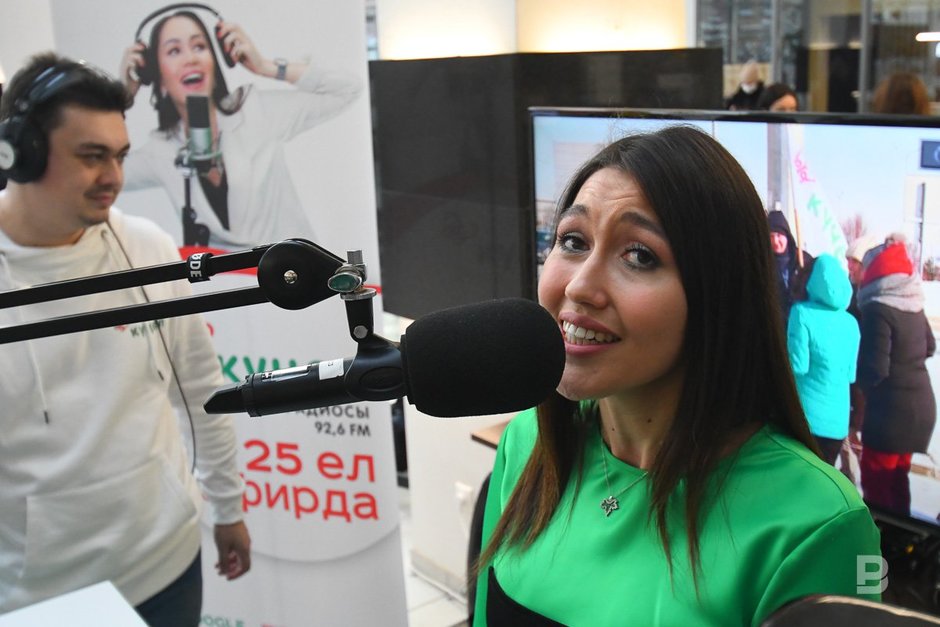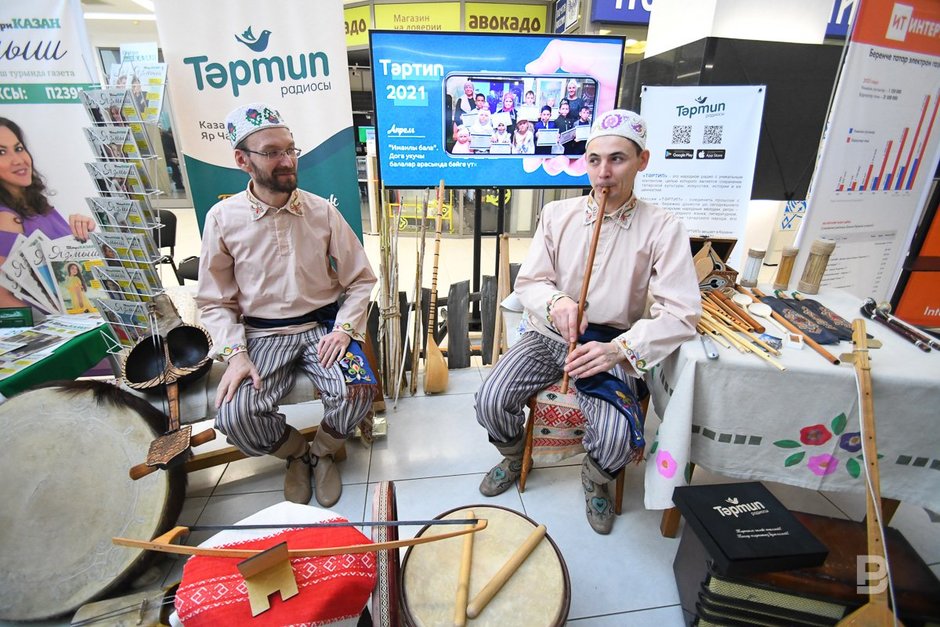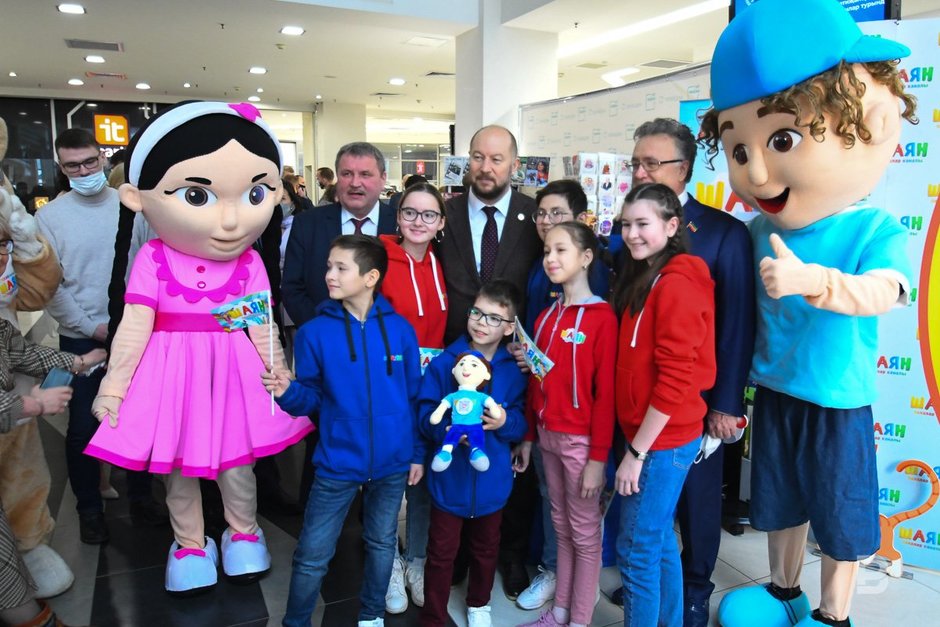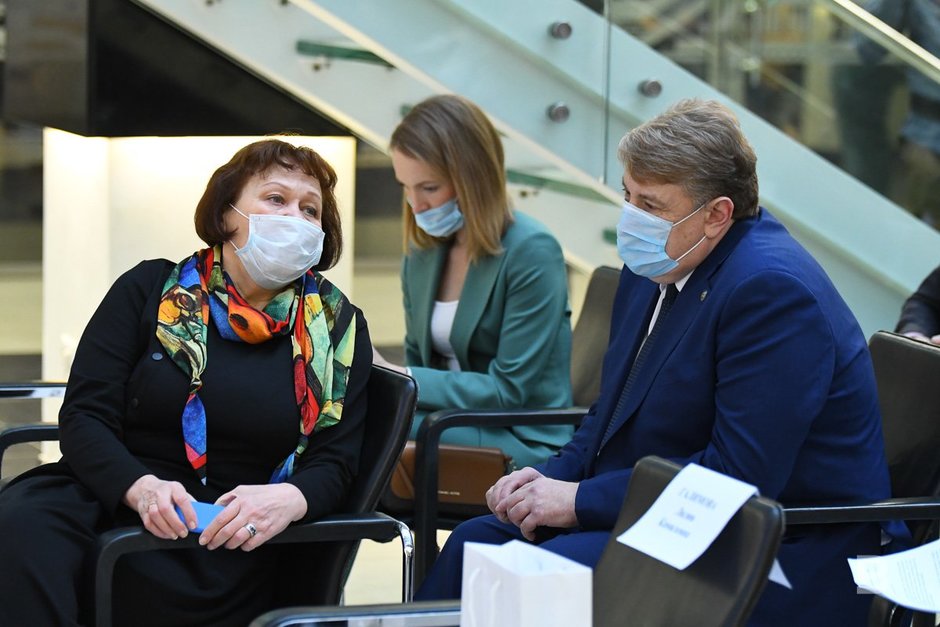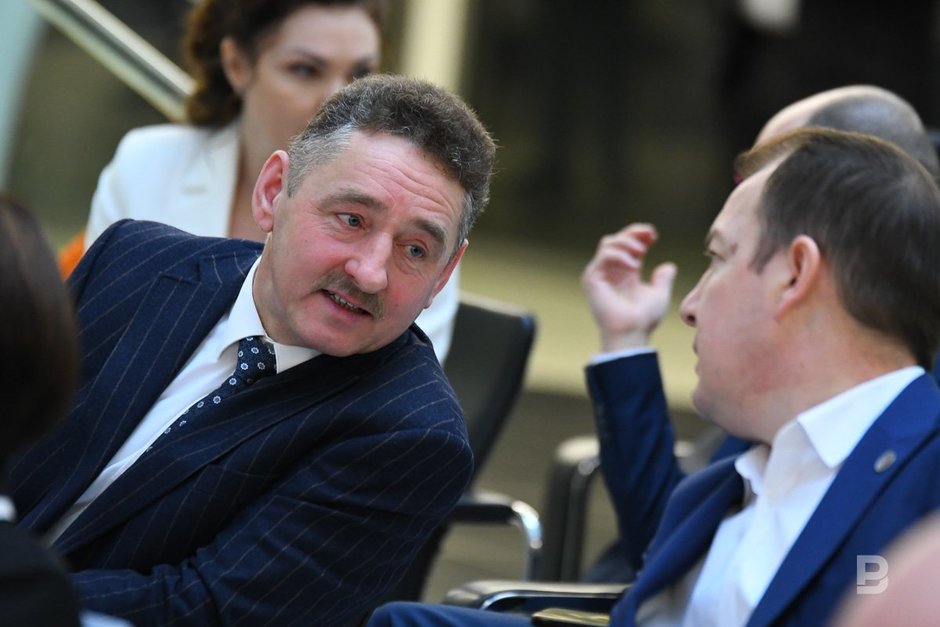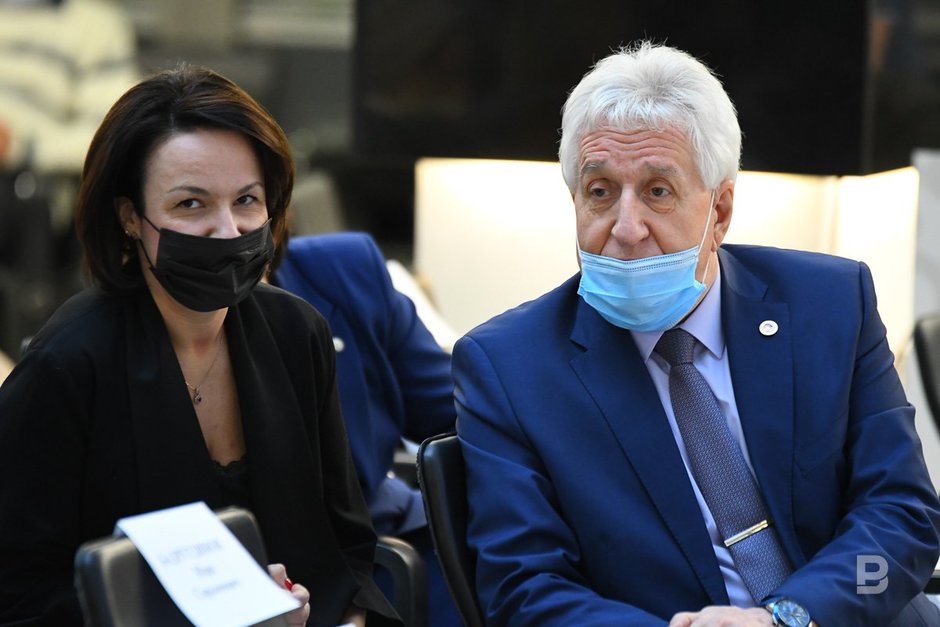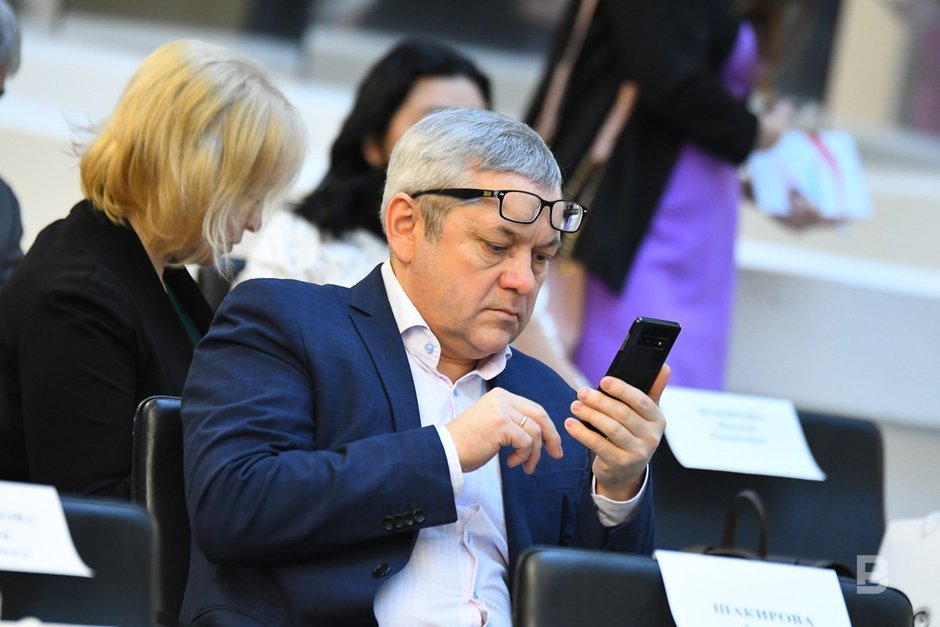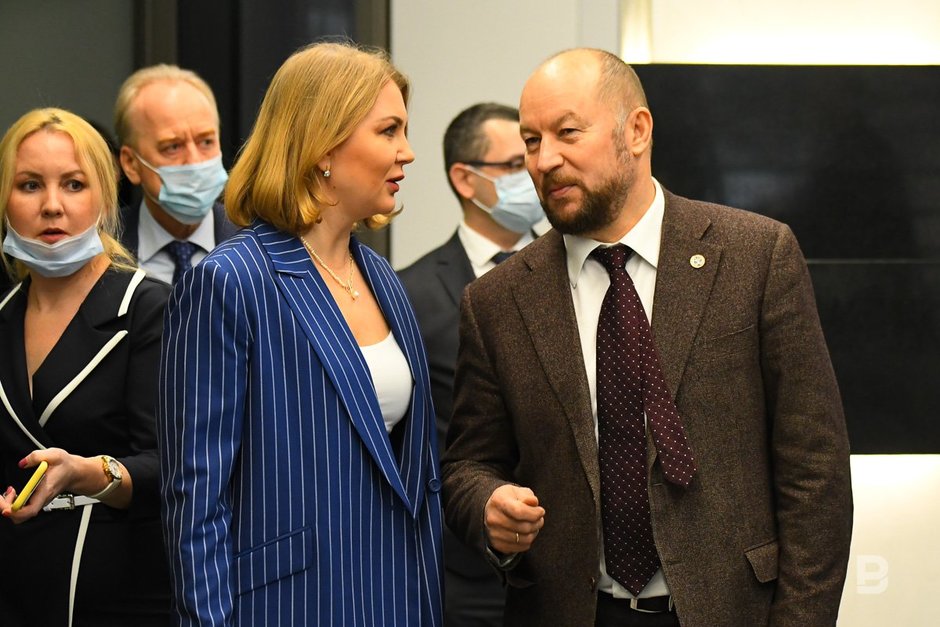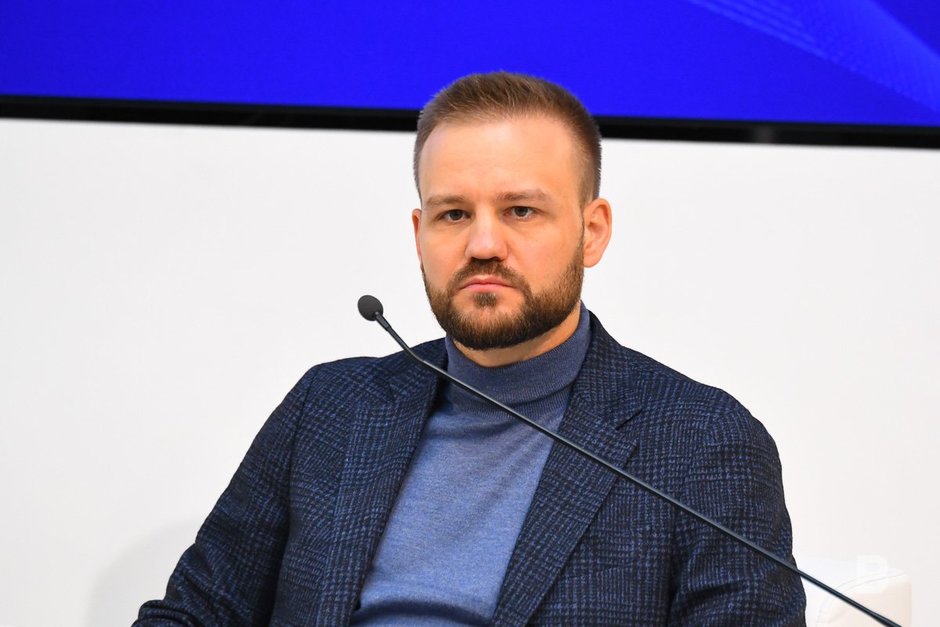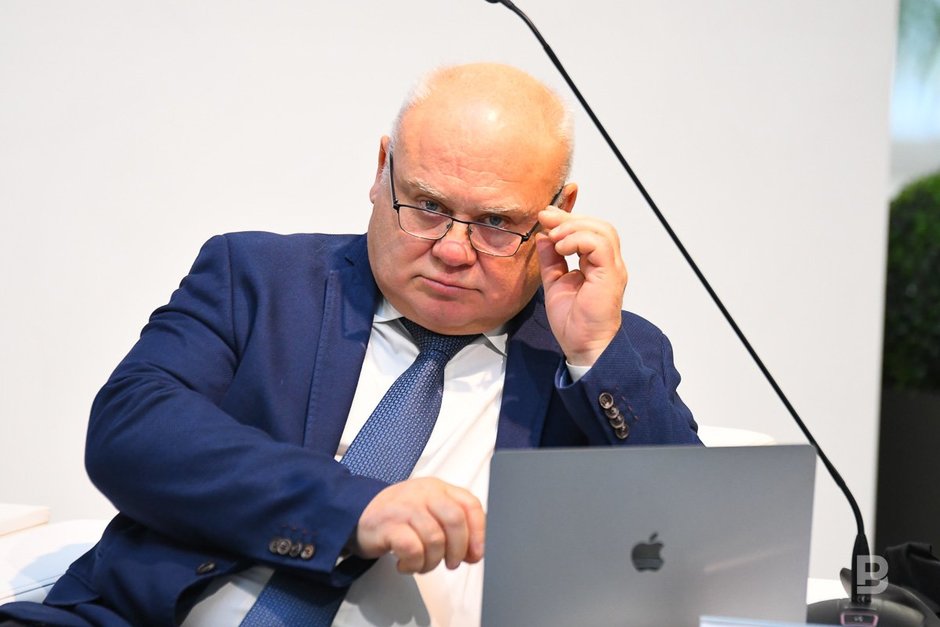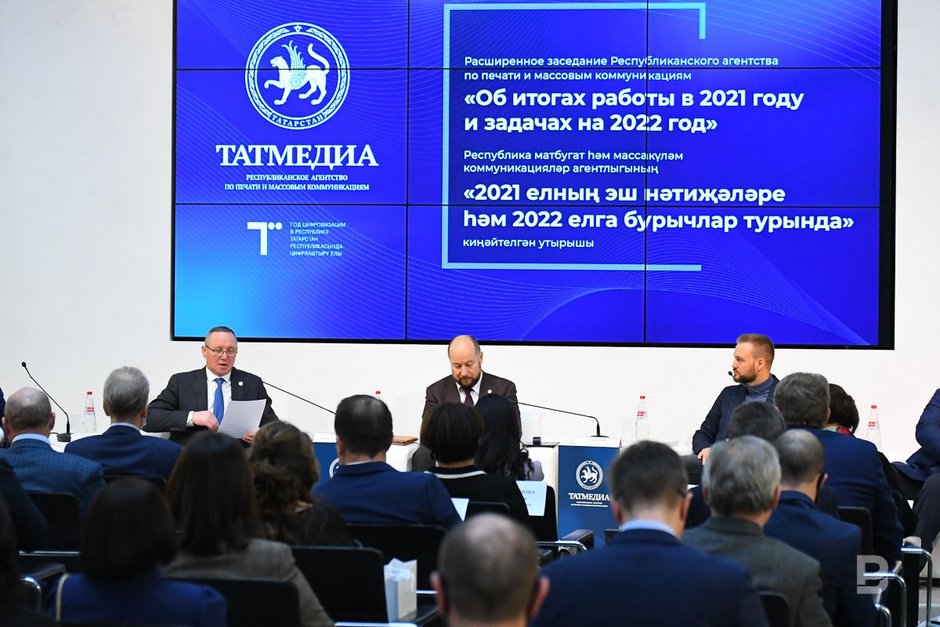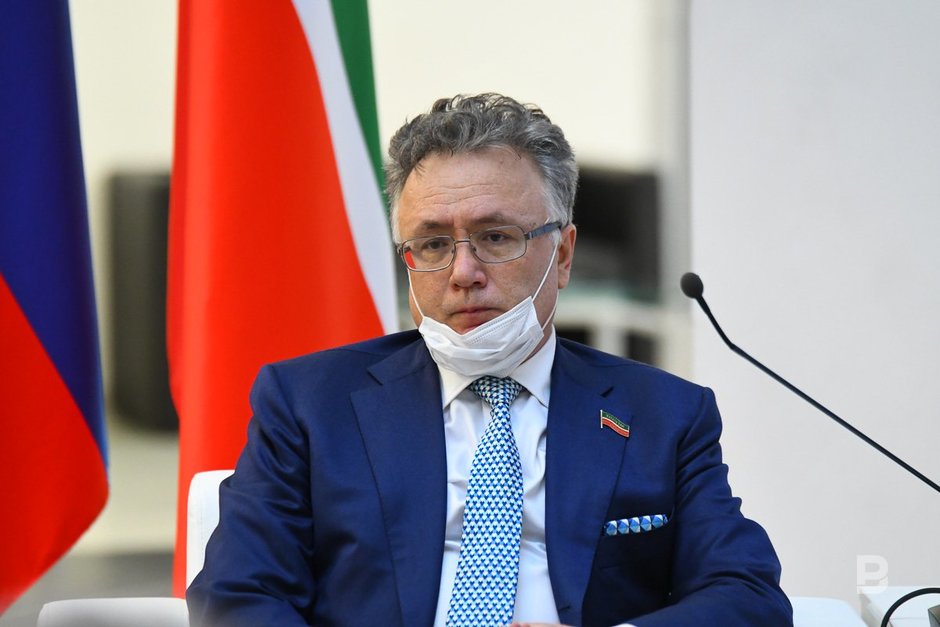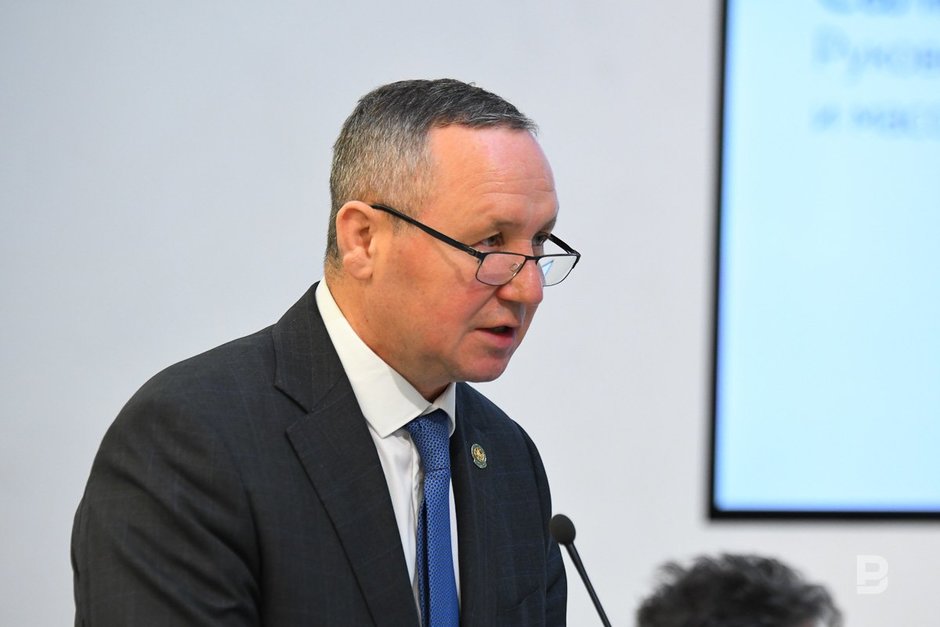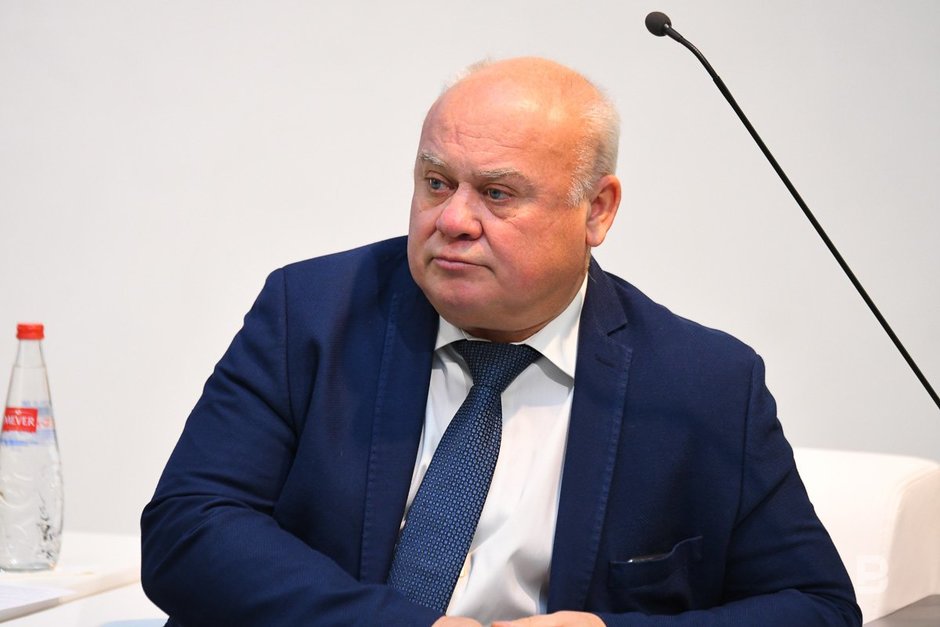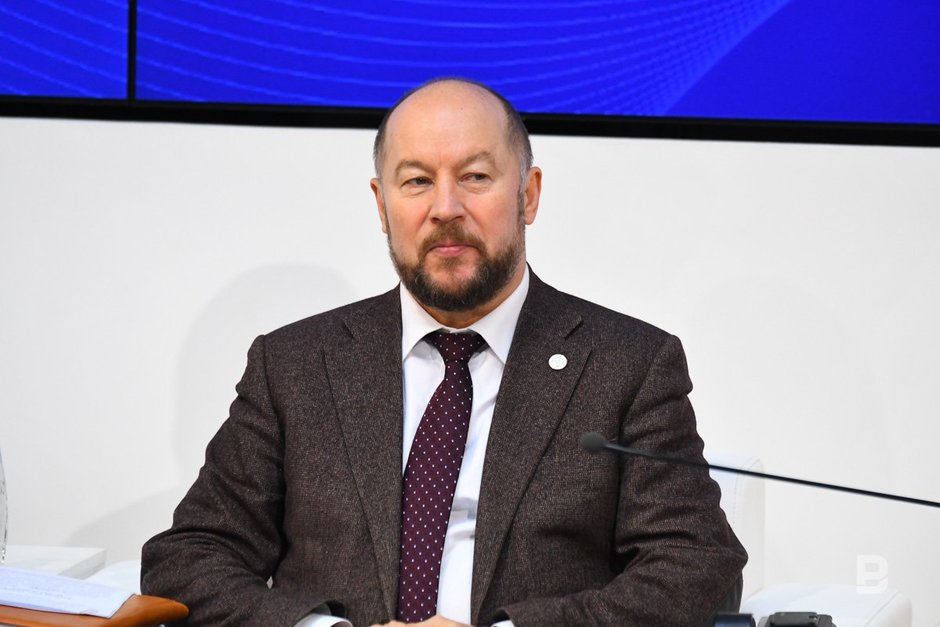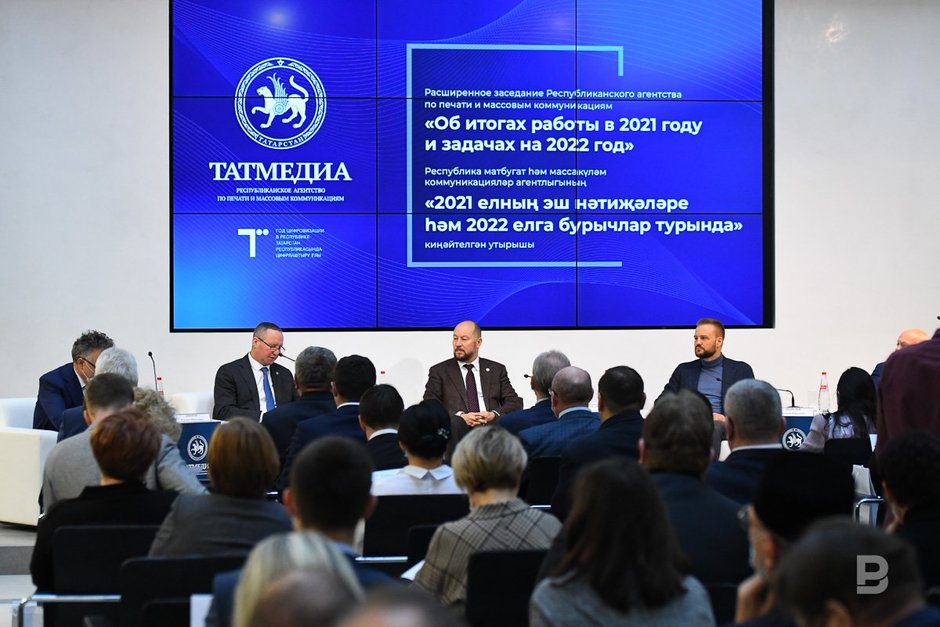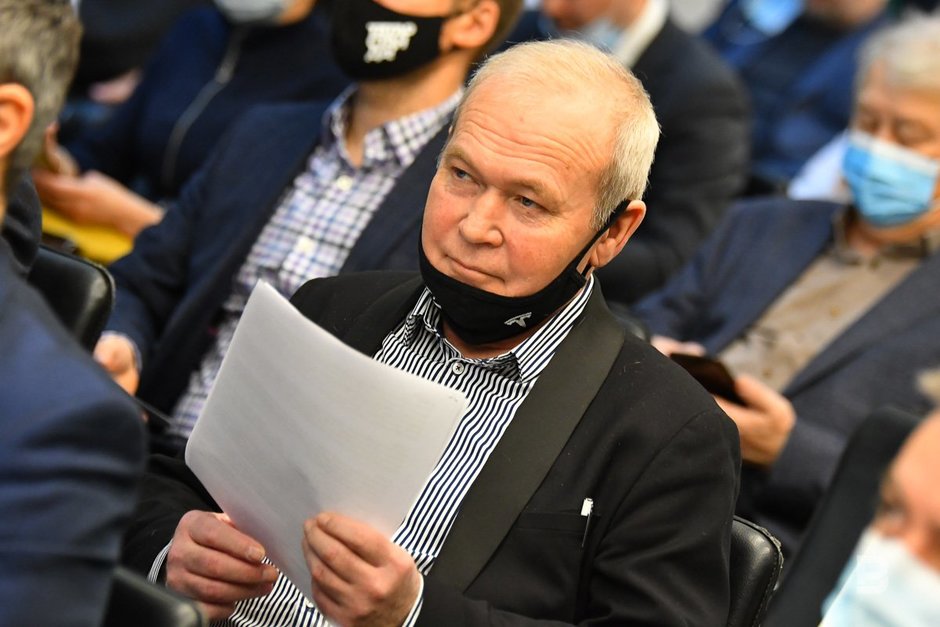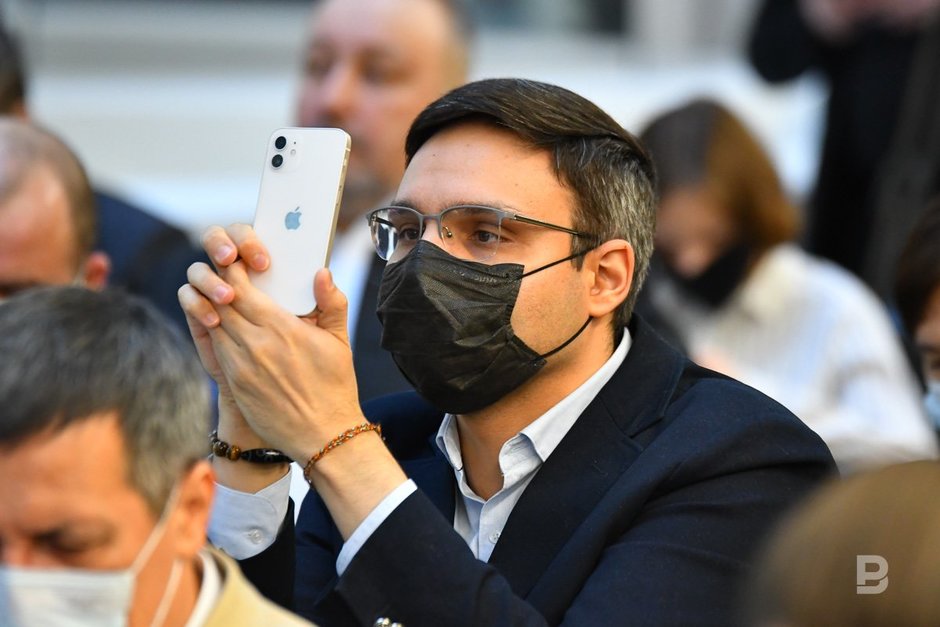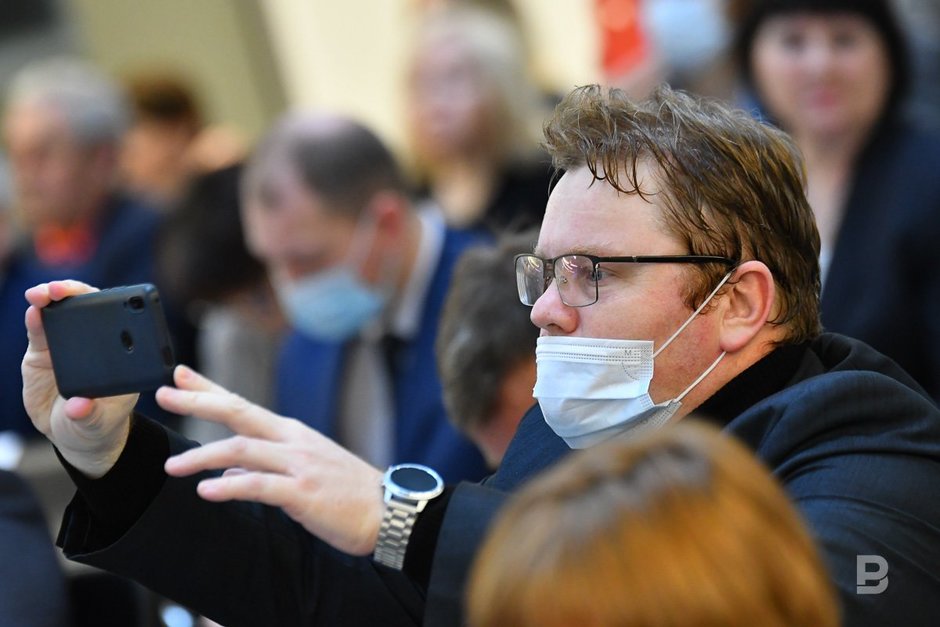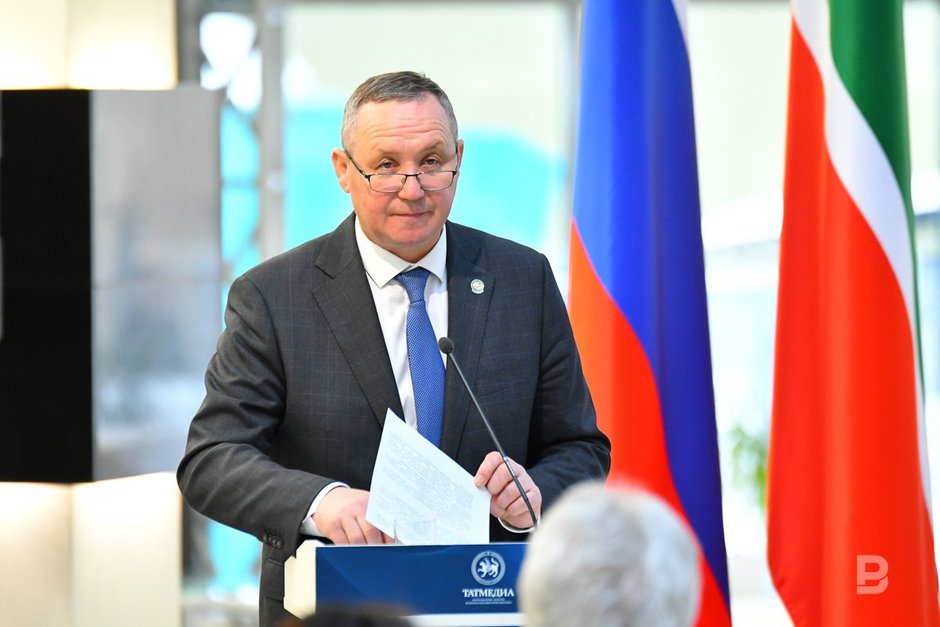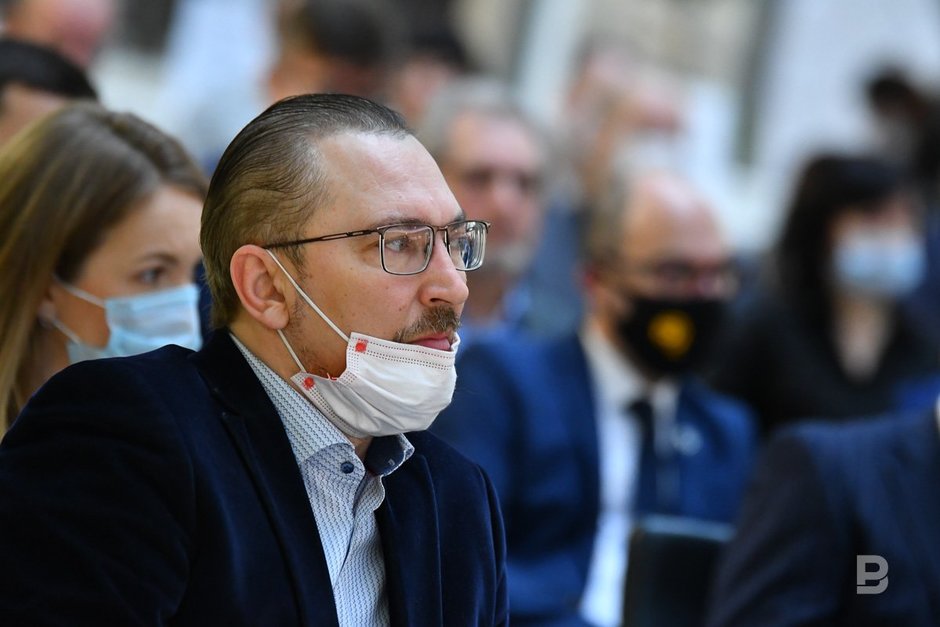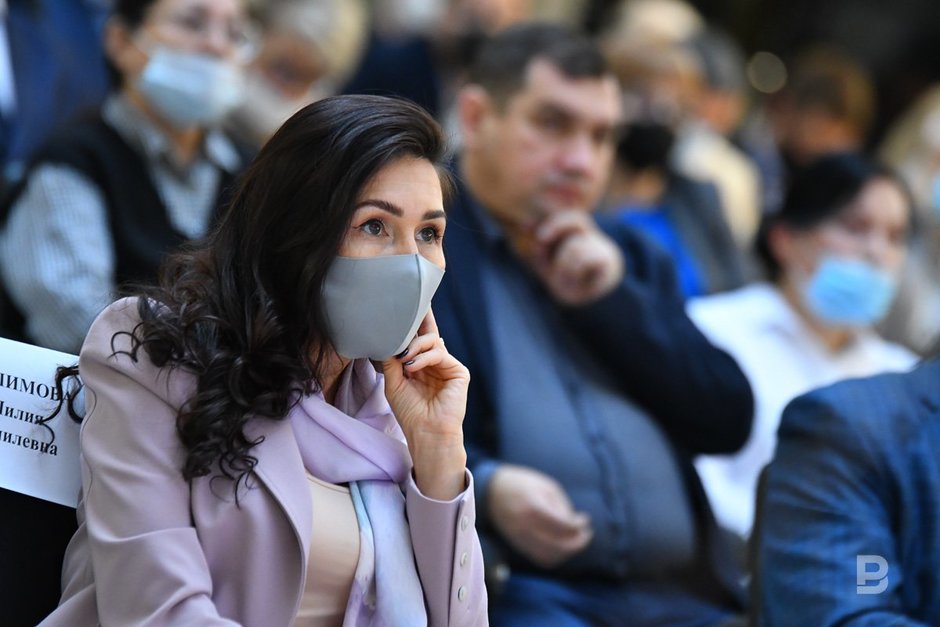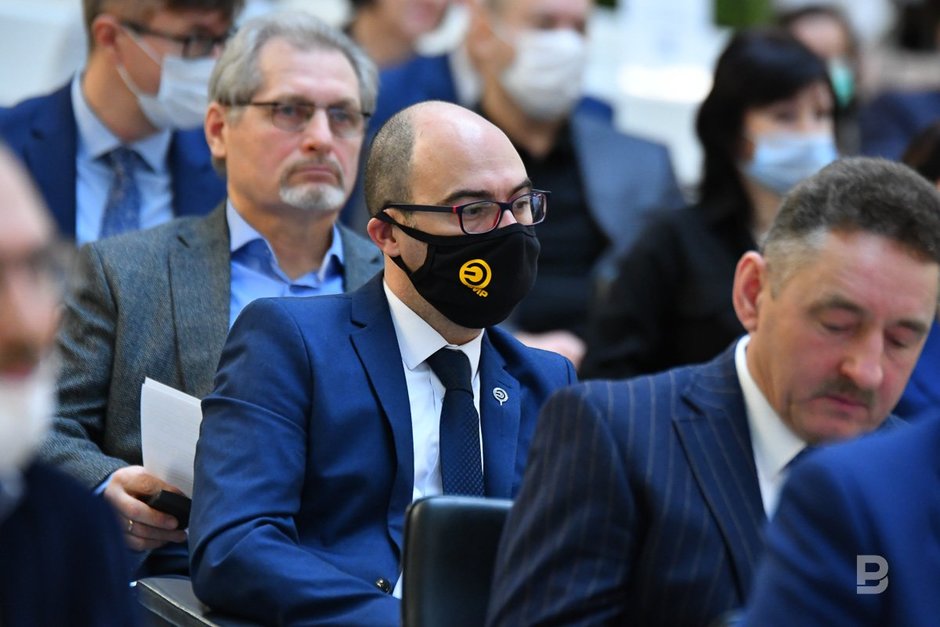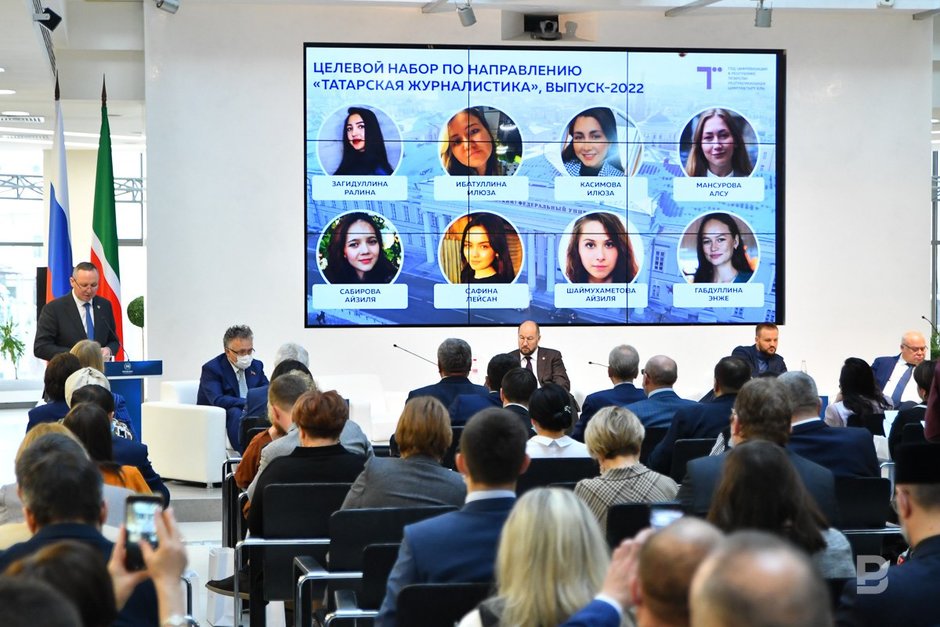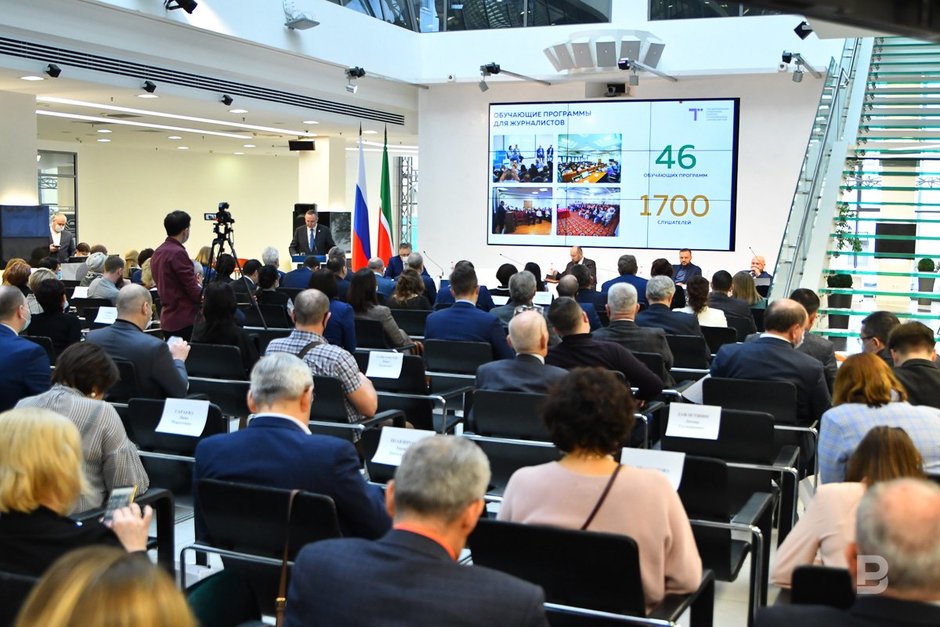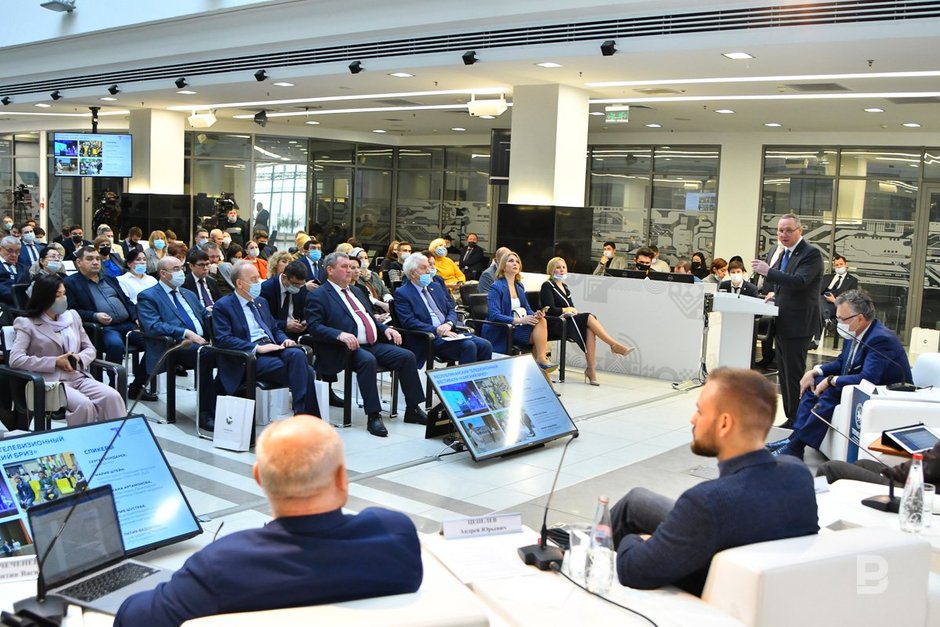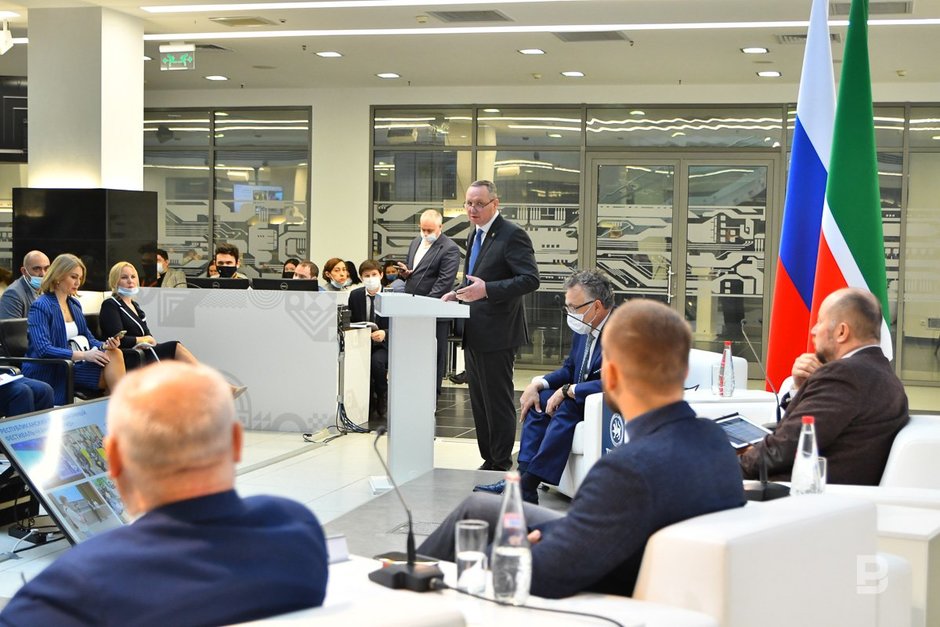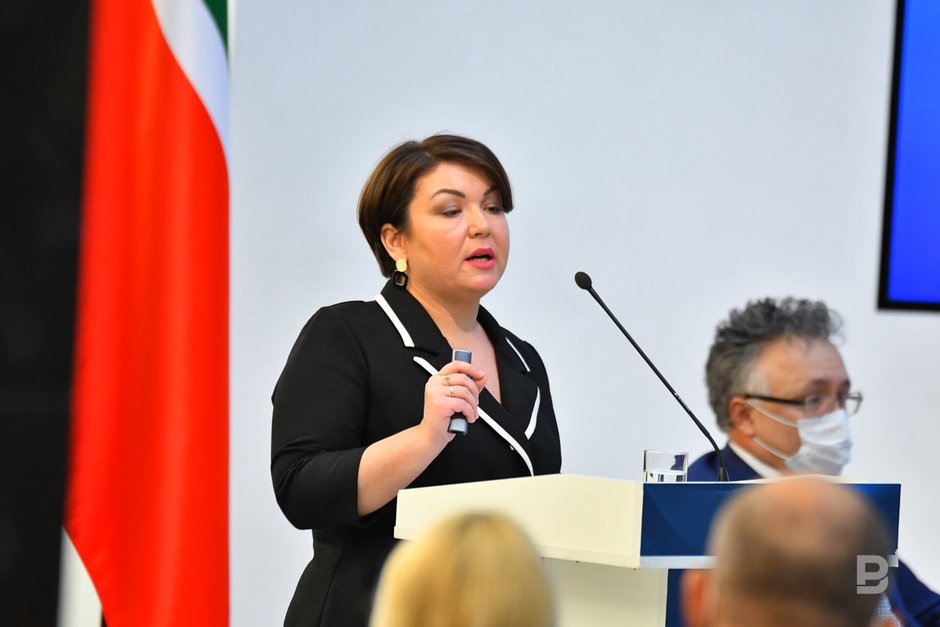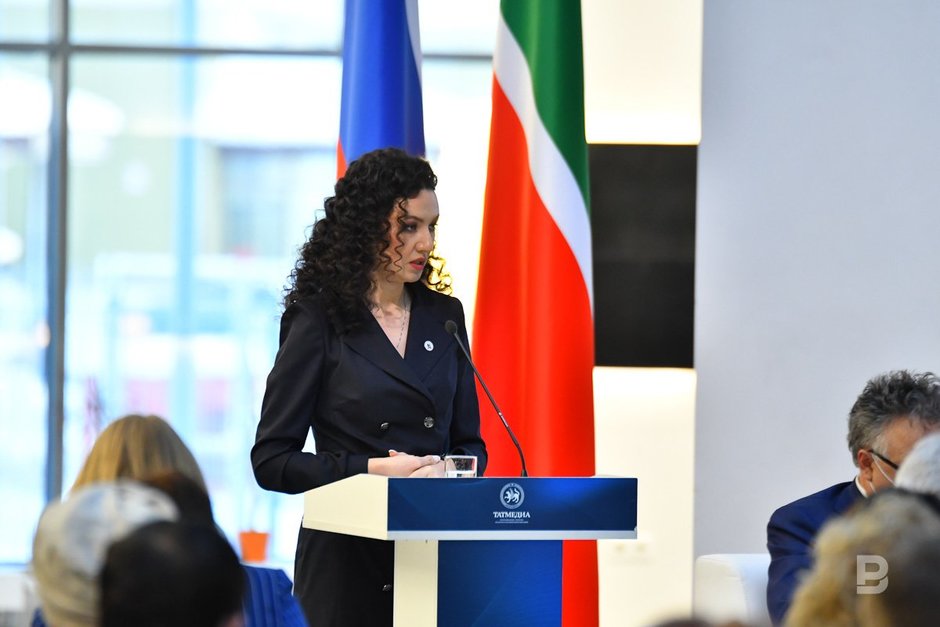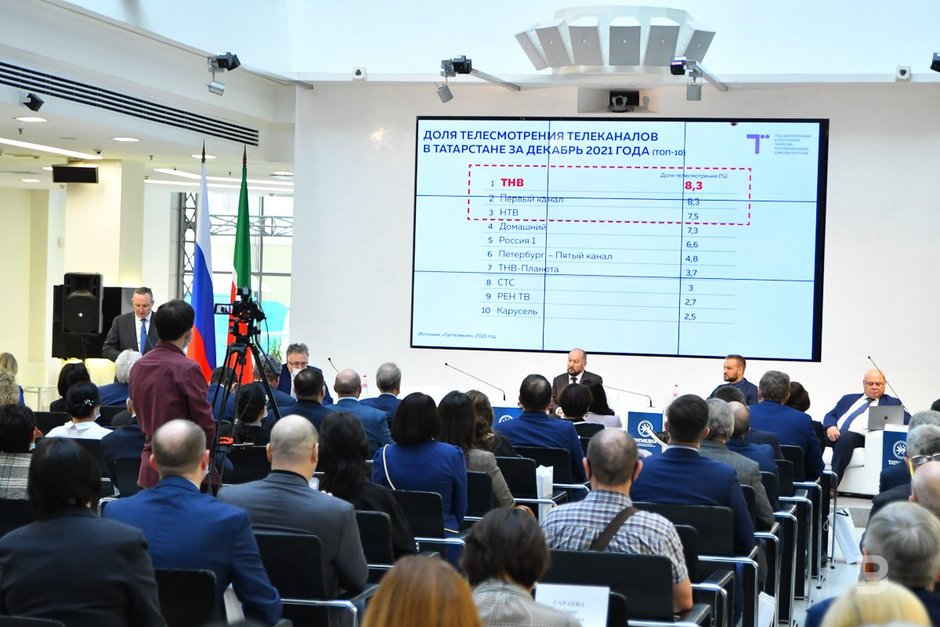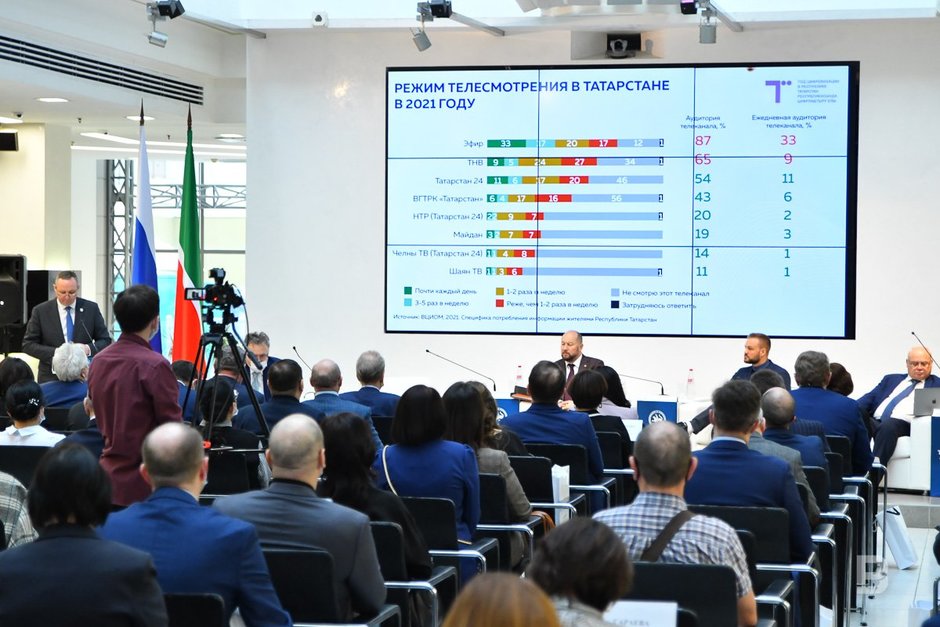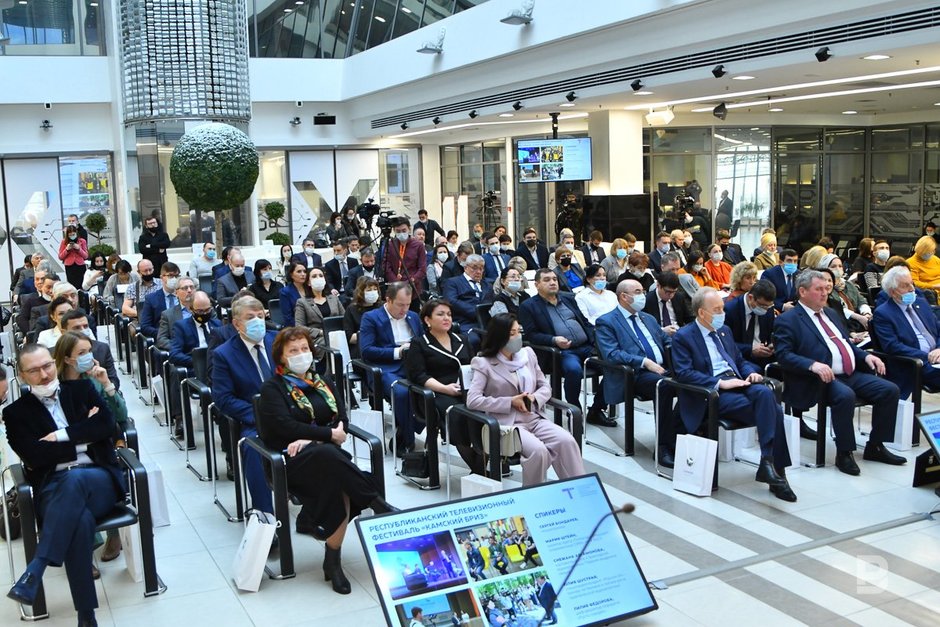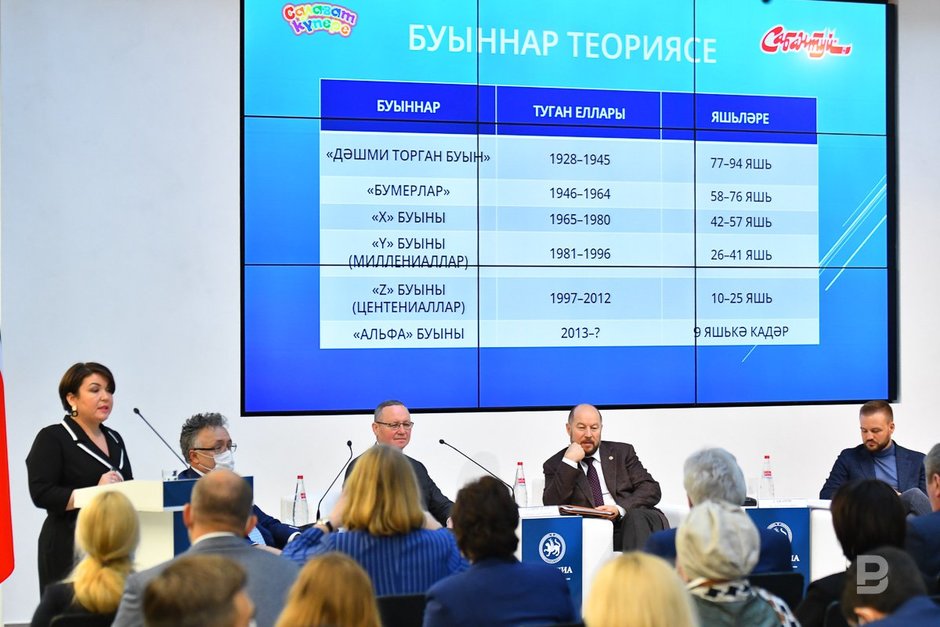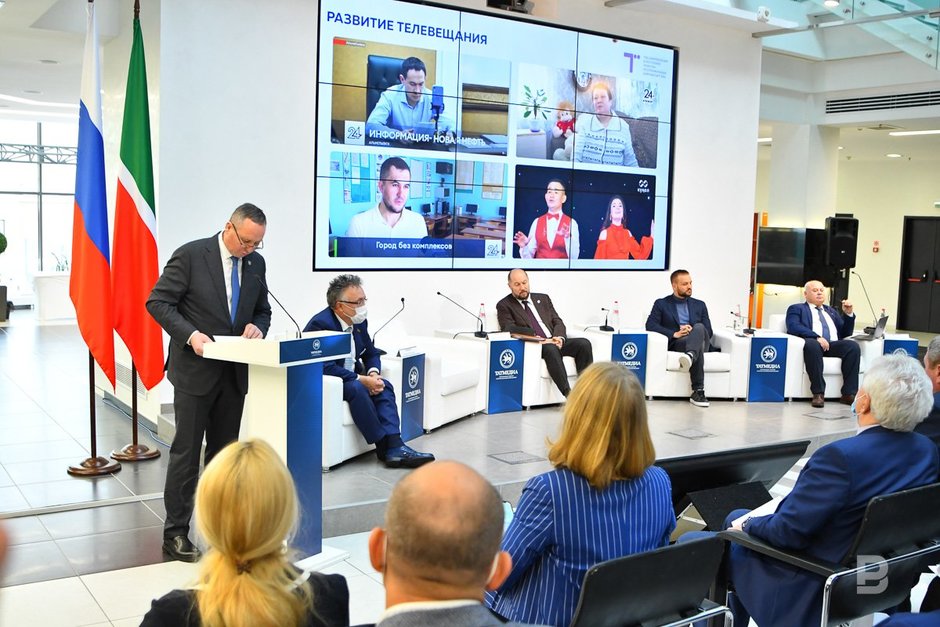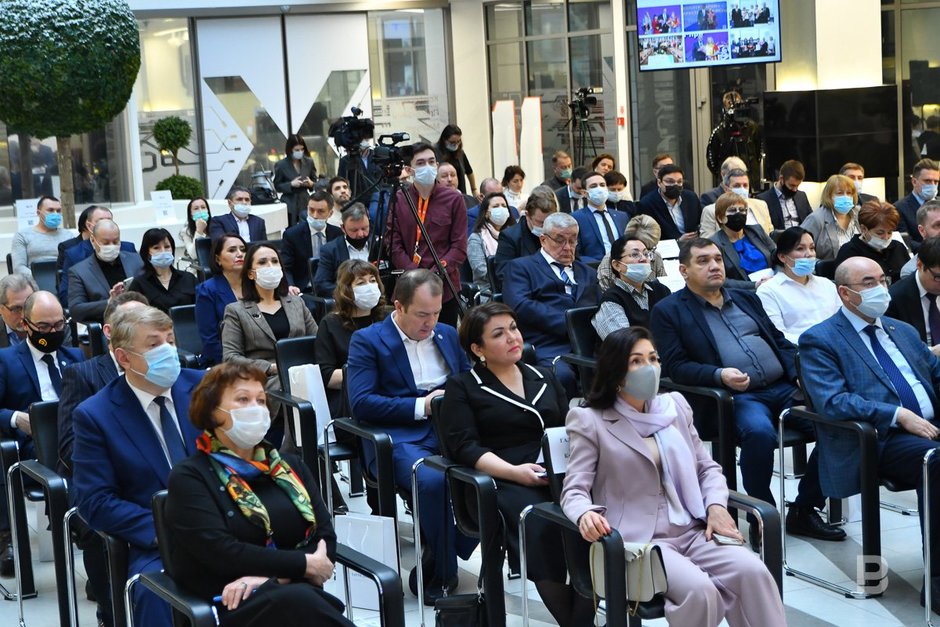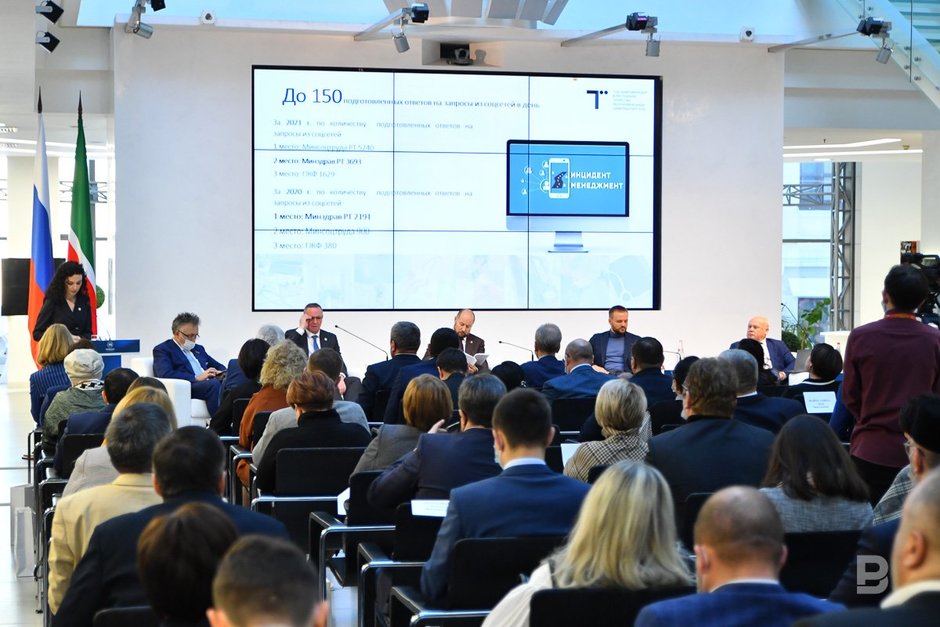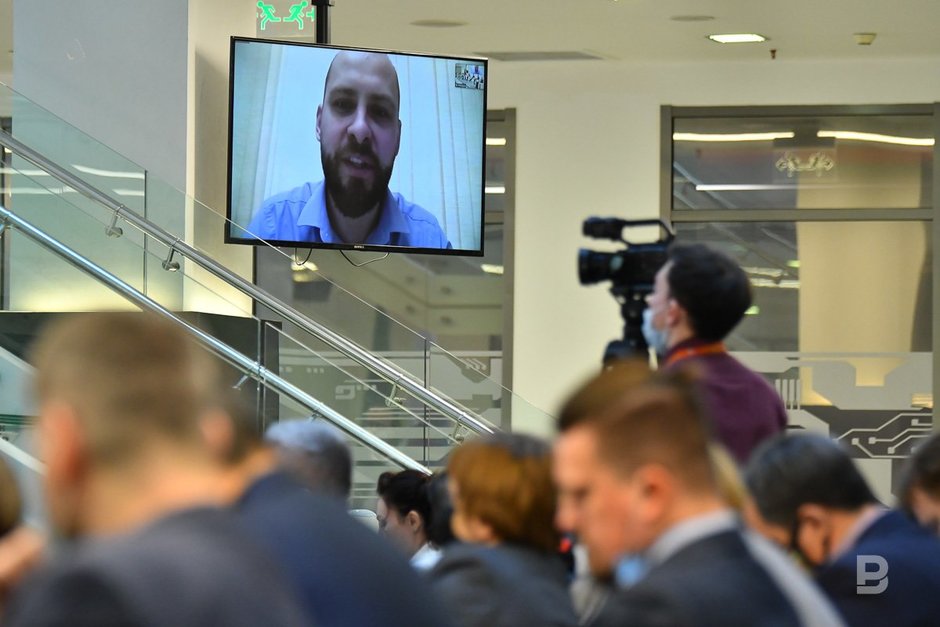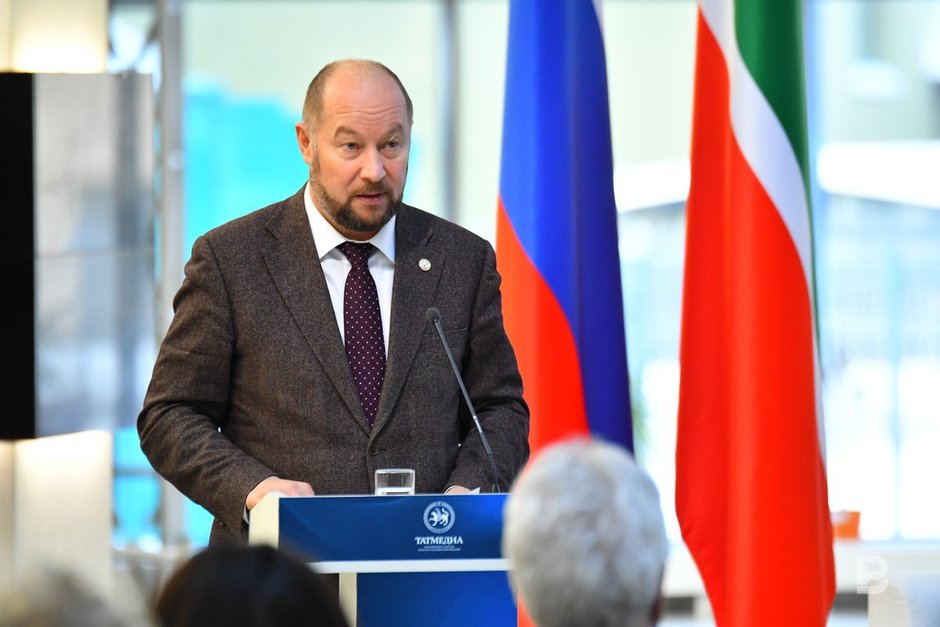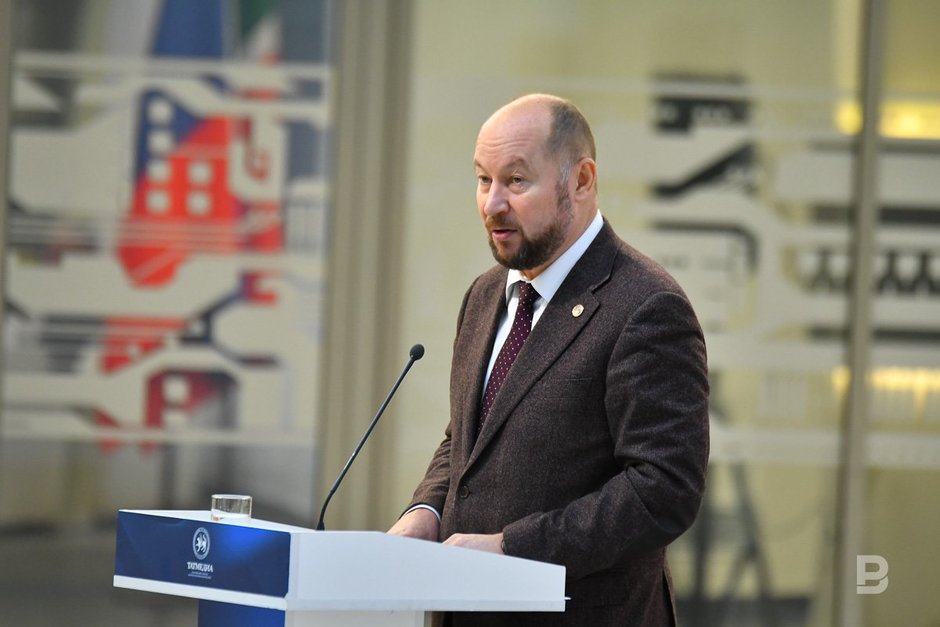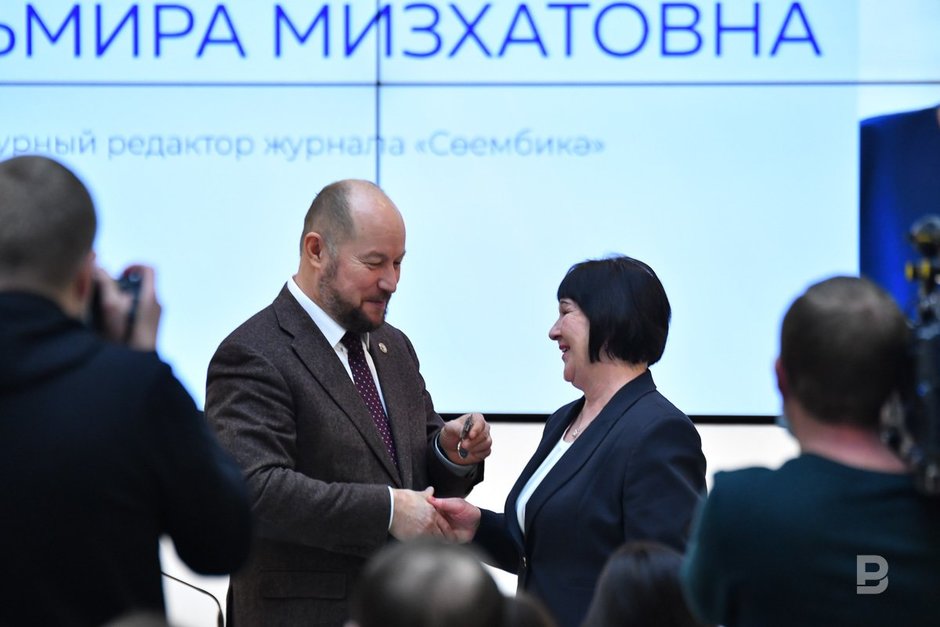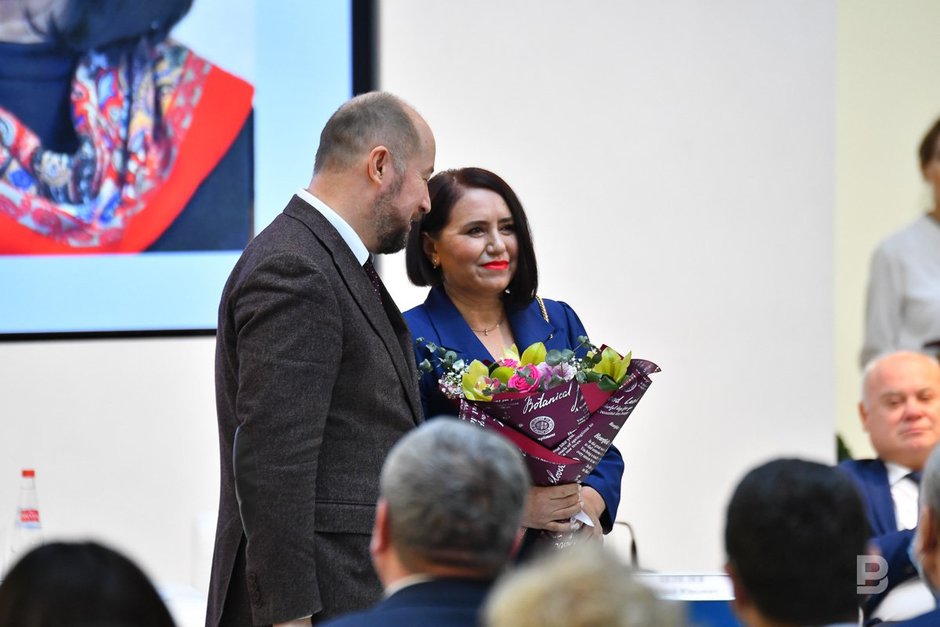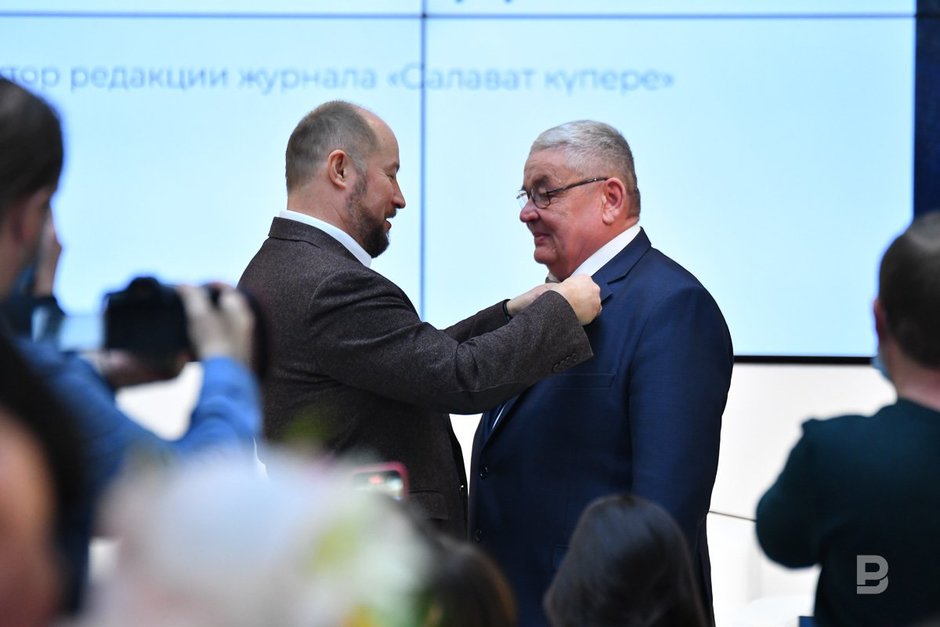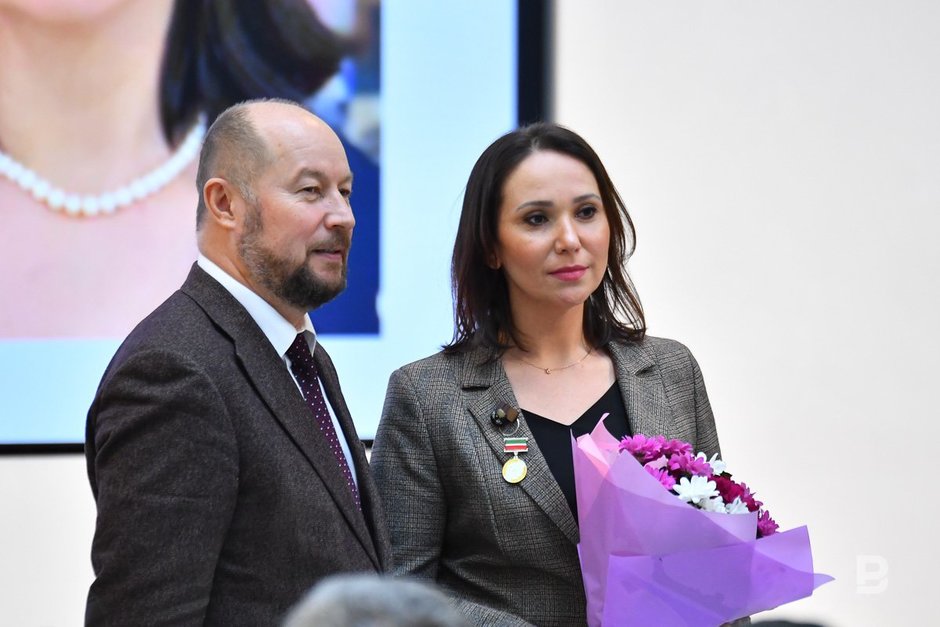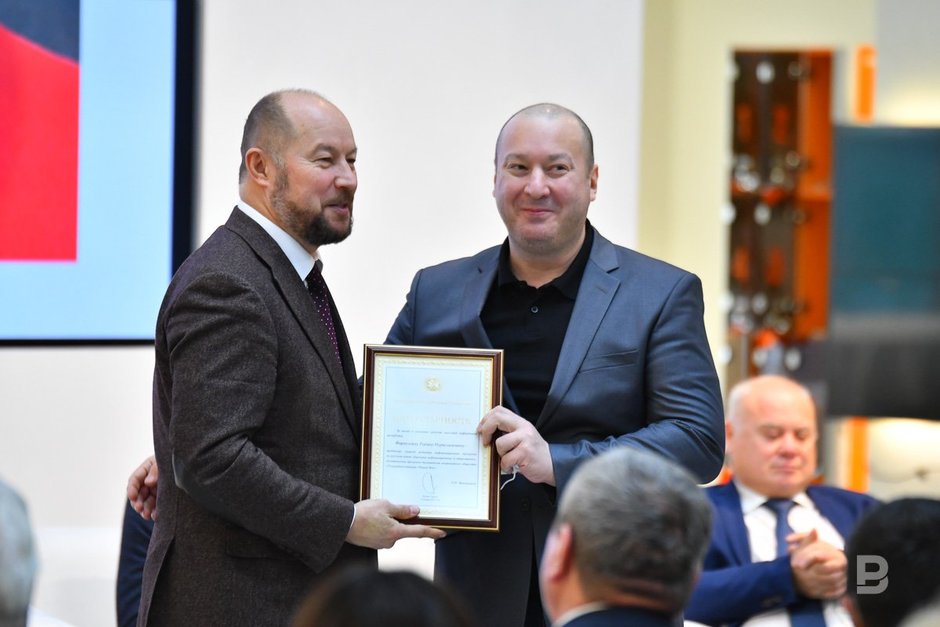Tatmedia board meeting: reflection of 'attack on Tatarstan', 'emphasis on people', and strengthening on TikTok
There are especially few young professionals and competent qualified employees
Tatmedia agency has decided to make its own content for Zoomers and has been actively developing the youth TikTok since last year. The reason is a sharp change in the environment, said the head of Tatmedia, Aydar Salimgarayev. In the era of the “information noise”, the main struggle for attention has unfolded on the Internet. And, obviously, Tatmedia is still losing it. The circulation of republican subscription publications collapsed during the pandemic, and broadcasting is being in crisis, the agency admitted. The Cabinet of Ministers of the Republic of Tatarstan sometimes “can't find relevant topics for their briefings”. About how trends in the media environment have changed over the past two years, why a third of users are already ready to pay for “unique content” and what projects the Republican Agency for Press and Mass Communications is going to attract the “generation Z” and those who are older — read in the material of Realnoe Vremya.
Tatmedia decides to make content for Zoomers
The head of the Republican Agency for Press and Mass Communications Tatmedia, Aydar Salimgarayev, already at the very beginning of his speech noted that even the board meeting itself, which was held in the Zoom conference mode, reflects the events in which the world was and is: they had to change speakers, as some of them got infected with coronavirus. Nevertheless, he insists, the pandemic “has failed to change the active life of Tatarstan”. Tatarstan citizens themselves actively express their position on a number of remaining socially significant problems, from road construction and garbage collection to the formation of public space. “It's not always pleasant, but generally constructive”, the speaker added. Basically, it is obvious that Tatarstan citizens express their position directly on social networks — therefore, the role of media channels, especially in recent years, has changed a lot. By now, Salimgarayev said, there has been a “complete redistribution of content”. Online and mobile content delivery channels have become popular.
“During the pandemic, the systemic problems of the industry, in particular distribution, have worsened. The almost complete shutdown of print kiosks has exacerbated the decline in retail press circulation — almost half across the country. Self-isolation has affected the availability of newspapers and magazines, but trust in high-quality and reliable information has grown," Salimgarayev said.
At the same time, he acknowledged that social networks, which previously performed only communicative functions, have become a source of “reliable information” for many (almost a quarter of Russians, anyway). People, especially young people, trust more those media who are actively represented on social networks. Despite this, Salimgarayev believes, the main source of reliable information remains news sites on the Internet. In this light, Tatmedia has taken care of the growth of the quality and popularity of youth content specifically for Generation Z. For example, in August 2021, the TikTok Factory of SHAYAN TV was launched, directly working for the audience of Zoomers (the generation of young people born in the 2000s).
“Tatarstan television is going through a stage of overcoming, moving from analogue to cable and digital”
“In today's realities, it is important to stay ahead of events, form public opinion, and not follow crises! For regular work with the population, ministries and administrations should rebuild their work in this direction!” said Aydar Salimgarayev.
At the same time, the role of specialists, on whom the formation of the image of government representatives directly depends, remains insufficient in the media space. Most press services consider it exhaustive to prepare press releases, and in some district administrations, there are no real press secretaries at all.
Among other problems facing the media industry of the Republic of Tatarstan, Salimgarayev called “information attacks on Tatarstan”, the crisis of Tatarstan television and personnel shortage. The shortage of young specialists and competent qualified employees is particularly acute, he believes.
To save local TV, Tatmedia has developed a project to ensure the delivery of content of republican TV and radio channels on the Smart TV platform (which allows content to be delivered to streaming media such as Netflix or Kinopoisk), which, the head is sure, will soon take a leading position anyway.
“There is a need for modernisation”
There are similar trends in the subscription print press, which Tatmedia still plans to support through turning to the federal authorities.
“The subscription is falling," the head of the agency admitted. “But not all resources have been exhausted to increase the reader's interest. We need platforms for promotion.”
Indeed, over the year, the total volume of copies of republican newspapers and magazines for the subscription campaign decreased by 8,4% and in the first half of 2022 amounted to 832,5 thousand. At the same time, against the background of falling circulation of subscription publications, there is a trend of stable growth of ethnic Tatar publications.
“The circulation of private publications in the Tatar language is phenomenal!” said Salimgarayev.
However, it is wrong to blame everything on the pandemic, they made it clear in Tatmedia itself. Thus, despite the general negative impact of the pandemic on the entire printing publishing industry, it was marketing flexibility that allowed Idel-Press to increase its profitability by 7,5% — up to 1 billion rubles.
The shortcomings and problems indicated by the management of Tatmedia were confirmed by the press service of the Ministry of Healthcare of the Republic of Tatarstan, which has become one of the most active due to obvious things. According to Alfiya Khasanova, any press service of the department or district administration should report directly to the chief. And form a positive agenda ahead of time. However, even then problems remain: there is not enough resource base, the staff of press services is too limited.
“There is a need for modernisation," she believes.
At the same time, the Ministry of Healthcare of the Republic of Tatarstan, forcibly or not, has become one of the most active participants in modern Internet platforms and social networks, where interviews are regularly conducted, including with Leila Fazleeva, the head of the coronavirus counteraction centre. According to responses to requests from social networks, including refuting fakes, the Ministry of Healthcare became the second in 2021. The first is for the Ministry of Social Work with 5240 responses. The Ministry of Healthcare — 3693.
Why Cabinet of Ministers of the Republic of Tatarstan sometimes “can't find relevant topics for their briefings”
“Tatmedia is responsible for the information climate in Tatarstan. The state information policy should also change. Products should be born for specific tasks, taking into account the opinions of those for whom they were developed, said Asgat Safarov, the chief of staff of the president of the Republic of Tatarstan. “Today, consumers spend almost all their free time with gadgets, attention has decreased. It is not an easy task to draw attention to the content in the first three seconds! Otherwise, the reader or viewer will leave.”
At the same time, Safarov admitted that not only personnel (its shortage) of Tatmedia is partly to blame for the media problems. Thus, due to the lack of initiative of some heads of ministries and departments, the Cabinet of Ministers of the Republic of Tatarstan sometimes cannot even choose relevant topics for daily briefings.
“The focus should be on people, not technology," Safarov said.
There is such a problem not only in Tatarstan. For example, according to Andrey Tsepelev, the deputy director of Dialog ANO, many regional authorities are losing control of the information field, including due to the inability to work with him “outside the elections”. He cited one gubernatorial campaign as an example, when the control of the information field by the election date increased to 70% — and immediately after fell to almost 18%. Many people misunderstand the principle of popularity of certain forms of content on the Internet.
According to Dialog, in the summer, during Vladimir Putin's next address, most of the content was distributed in the form of cards — they also received the least likes. Whereas the texts of bloggers, and especially the videos in TikTok, were among those whom the audience tended to trust more.
People spend more time online, watch less TV
Alexander Lyapin, the director for integrated communications at the Internet Development Institute, summed up how much the media environment has changed. According to him, 89% of Russians continue to watch TV — an average of 2,5 hours on weekdays, 3 hours on weekends. It is already inferior in time to the Internet, on which an average Russian spends 3 hours and 40 minutes on a weekday and more than 4 hours on weekends. Moreover, 86% of people, especially the younger generation, simultaneously watch TV in parallel with their smartphone. The share of people who watch TV itself on smartphones or laptops is also growing. Large TV screens are mainly used for watching movies and TV series in streaming services — TV series, by the way, have become the leading content both on TV and on the Internet. About half of Russians are already ready to abandon offline cinemas in favour of online.
Messengers, in turn, are among the leaders in hits and views on the Internet. They are followed by searching the Internet for information, social networks and viewing video content. In recent years, for coronavirus reasons, the number of people looking for goods and services online has increased.
In principle, the Internet today is accessed mainly through smartphones (95%). The leaders among the platforms are Instagram, VKontakte and TikTok. The latter broke into the Russian network about two years ago, pushing aside even the giants such as Facebook, Twitter, and Odnoklassniki in popularity. WhatsApp is the first among messengers, Telegram is the second for the first time last year. A new phenomenon has also appeared — the “new prime time”. That is, traffic flows from prime-time television to active use by viewers of social networks and the Internet in general.
“Social networks have also changed the structure of formats. Along with professional content, the consumption of amateur content has also grown. An example is TikTok, which consists almost entirely of amateur content. The blurring of boundaries between professional and amateur content is also demonstrated by YouTube video service. Amateur teams are starting to make content that is very popular. The most popular today is video content," Lyapin said.
According to him, Russians aged 14-19 and 30-40 prefer videos, at the same time, the “duration of content units” has also decreased. Users are not ready to watch long issues, on average, videos lasting 12-15 minutes are popular. The paradox that with the unwillingness to watch long videos, the popularity of TV series is only growing, the Internet Development Institute explains as follows: “Users are still ready for long stories, but are not ready to watch them in large chunks.” Another interesting trend is the consent of many Russians to subscriptions (and this trend directly contradicts the situation with subscriptions in the Republic of Tatarstan) and paid content, which is already used by 30% of the population. It's all about interesting content that people are willing to pay for.
“People subscribe for the sake of unique content, lack of advertising and multiservice," said the expert.
